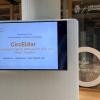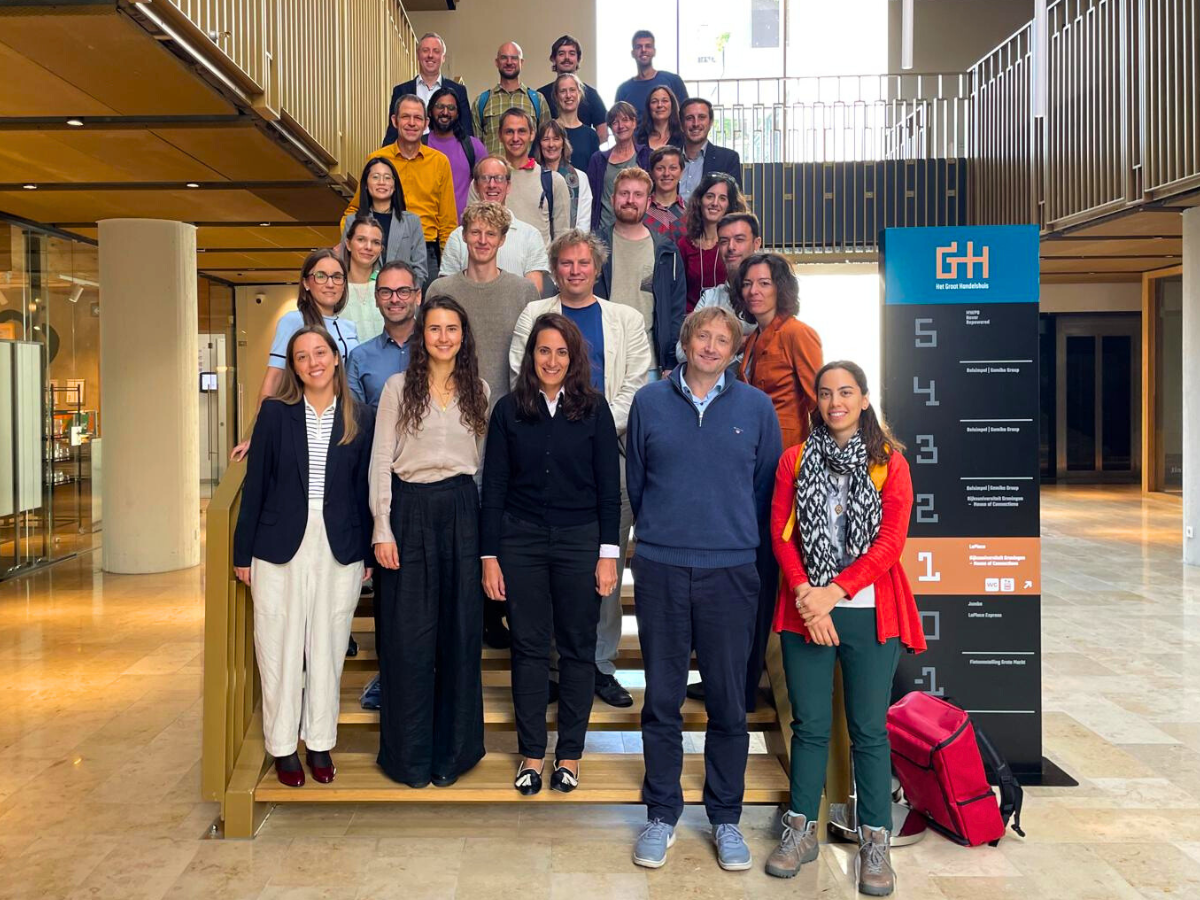
Last month, CircEUlar had its third in-person consortium meeting hosted by the University of Groningen at the, very appropriately named, House of Connections. Twenty-eight CircEUlar members from across 12 research organizations met over three days of collaborative working. The meeting was also an opportunity for T6 Ecosystems, University of Groningen and CircEUlar’s sister-project CircoMod, to design, plan and deliver a stakeholder workshop, "Towards Net-Zero through a Circular Economy: the consumer and business perspectives".
On Monday, the consortium meeting’s scope centred on cross-cutting topics and the focus areas of mobility and buildings. Namely, joining the dots across various research activities and finding cross-overs and synergies in urban form. For example, the interplay between energy and material demand was explored. The aim was very much to compare models and combine results making the final project outputs more robust and practical.
After a few hours of intense collaborative working, the day ended on a lighter note with a dinner allowing for further team bonding.
On Tuesday, the day started with two parallel sessions, one on quantitative modelling of circular economy-driven net-zero pathways and the other one on social science research regarding the development of a business toolkit and a consumer survey with a focus on circular consumption practices. The toolkit will show-case business circular practices and their wider, societal rebound-effects while the multinational survey will better explore the drivers and barriers of circular consumption.
This was followed by a plenary session concentrating on the third focus area, digitalization, and specifically digitalization as an enabler of circular practices as well as the energy and material consumption of data centers.
Tuesday closed with almost 40 stakeholders attending the Towards Net-Zero through a Circular Economy: the consumer and business perspectives’ hybrid event. The workshop kicked-off with some plenary presentations from CircoMod and CircEUlar researchers looking at both the consumer preferences in mobility and dwelling, and in-use stock as drivers of global material demands as well as business perspectives on household appliance lifecycles and how circular business practices link to rebound effects.
Over half of the stakeholders were then invited to attend a breakout group either focusing on consumer behaviour or business practices. The heterogeneous groups of stakeholders, including local civil society organisations, local start-ups operating in circularity; local government; and larger, more established businesses, made for very stimulating and invigorating discussions around how consumers and businesses could do more to adopt circular practices and be more supported to take up such actions.
Stakeholders’ feedback will be integrated in the research development to ensure findings are more practical and impactful.
The final day of the meeting focused on connecting the quantification of the narratives with the empirical research in the three focus areas, including the consumer survey and stakeholder feedback to inform the development of the pathways to circularity and net-zero emissions. The narratives sketch out circular economy strategies as a lever to reach net-zero GHG emissions using the narrow (use less), slow (use for longer) and close (use again) approach. The following working sessions also highlighted the progress of the stakeholder engagement activities across the focus areas and the strategic communication and dissemination of the project findings and achievements. The day ended with feedback from the project’s esteemed Advisory Board.
The research partners have come away from Groningen energized and looking forward to continuing the collaborative working online, consolidating those connections and links both within the consortium and beyond, with the engaged stakeholders.
Adapted from a news item shared on the CircEUlar website.
About the CircEUlar project
CircEUlar is a four year European Research and Innovation Action that will develop new modelling approaches for analysing circularity from a systems perspective accounting for:
1) dematerialisation and the transition to a service-based economy to limit material stock growth;
2) lifetime extension of material stocks through repair, maintenance, reuse;
3) waste treatment and material recycling.
CircEUlar’s approach will be comprehensive, combining new data and modelling of economy-wide material stocks and flows, greenhouse gas (GHG) emissions, and industrial value chains across interlinked sectors, with deep-dive analysis of mobility and buildings as material-intensive demand sectors. These two focus areas have large material stocks, potential for circular transformation, and strong dependence on both circular consumption and production practices.
News

30 October 2024
Three pathways to achieve global climate and sustainable development goals

24 October 2024
2024 UNEP Emissions Gap Report: Immediate action essential to keep 1.5°C target alive

09 October 2024


